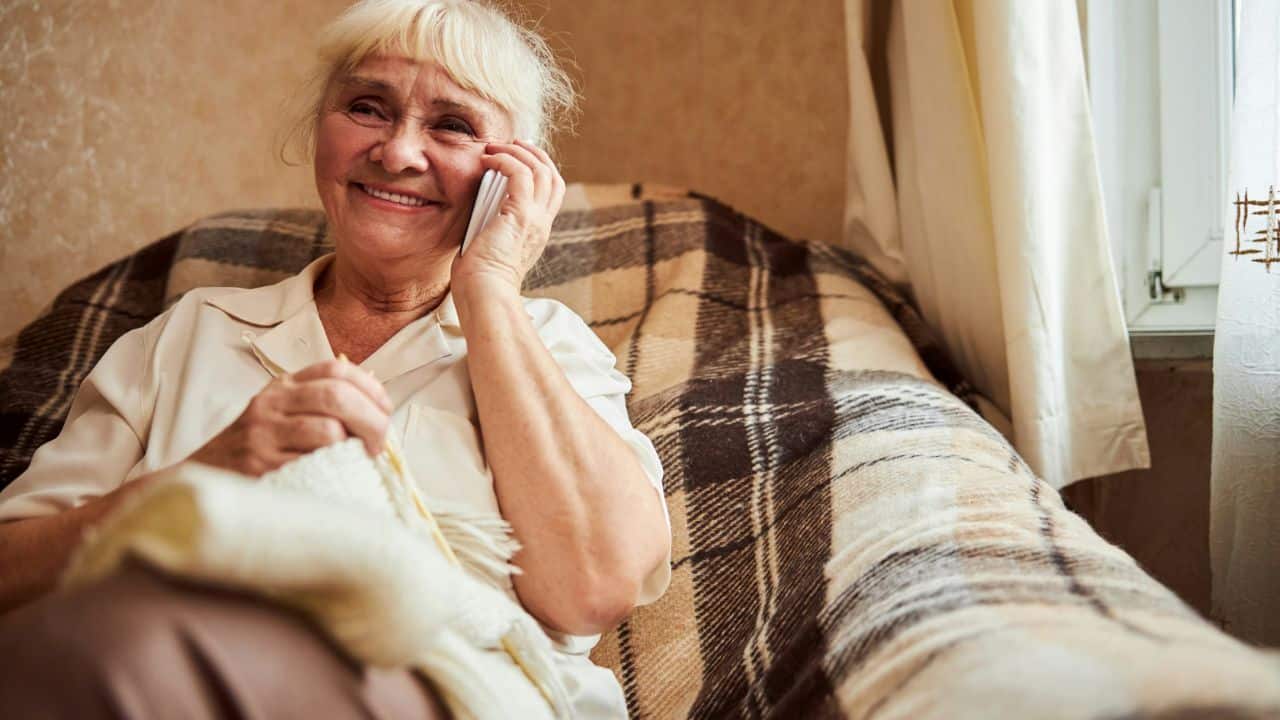Understanding the Early Signs Of Dementia: What To Look For And When To Seek Help
It’s natural to feel worried when you notice a loved one becoming more forgetful, struggling with daily tasks, or acting a bit differently than usual. Many families in Macclesfield face these challenges and wonder—what’s normal, and what could be something more serious like dementia? But what are the early signs of dementia? At Riseley House, we’re here for you and your family, ready to offer warm advice, reassurance, and support at every stage of the journey.Read more
7 Joyful Highlights of Elderly Care in Macclesfield This Week
This week’s update from Riseley House showcases the vibrant and engaging approach we bring to elderly care in Macclesfield. From physical activities to pet therapy and intergenerational connection, each moment is designed to lift spirits, support well-being, and nurture community.Read more
Top 5 Elderly-Friendly Parks in Macclesfield for Relaxing Outdoor Visits
Exploring elderly-friendly parks in Macclesfield offers seniors serene environments to enjoy nature, gentle exercise, and meaningful social interaction. These local green spaces are ideal for those seeking peaceful walks, fresh air, and time to unwind.
At Riseley House, we know that time outdoors contributes significantly to mental and physical well-being, especially for elderly individuals. That’s why we’ve rounded up five of the best elderly-friendly parks in Macclesfield — all easily accessible, calming, and perfect for a relaxed visit.
🌳 Why Elderly-Friendly Parks in Macclesfield Matter
These parks have been chosen with accessibility, comfort, and ambience in mind. From wheelchair-friendly paths to regular seating areas, each one encourages older visitors to feel safe, welcome, and refreshed by nature.
1. West Park
Located just outside the town centre, West Park is one of Macclesfield’s best-known green spaces. It offers level pathways, accessible restrooms, and a quiet café for refreshments. Its rose garden and tree-lined walks make it ideal for low-impact strolling and moments of reflection.
2. Tegg's Nose Country Park
Tegg’s Nose offers breathtaking views across the Cheshire countryside and several well-marked, gently sloping trails suitable for most mobility levels. Benches are available at regular intervals, and the park is dog-friendly too — ideal for family visits with a four-legged friend.
3. Macclesfield Forest
For a tranquil woodland experience, Macclesfield Forest offers flat, shaded trails and plenty of wildlife spotting opportunities. There are several circular routes around the reservoirs, and the picnic spots are perfect for a relaxing afternoon.
4. Middlewood Way
This 10-mile trail, set along a disused railway line, provides a wide, smooth surface great for walking frames or wheelchairs. Whether walking a short stretch or enjoying the whole trail, Middlewood Way provides an easy-going route through countryside and woodland.
5. Riverside Park
Riverside Park follows the River Bollin and is known for its gentle atmosphere. With its riverside benches, floral displays, and flat footpaths, it’s one of the most calming elderly-friendly parks in Macclesfield — perfect for peaceful afternoons outdoors.
🧠 How Outdoor Visits Support Elderly Well-being
Spending time in elderly-friendly parks in Macclesfield helps reduce stress, ease mobility challenges, and improve mood. Whether enjoying a gentle walk or simply sitting in nature, outdoor spaces foster connection, movement and calm — all vital to quality of life.
ℹ️ Further Resources
To learn more about local parks and facilities, visit the Cheshire East Council Parks & Open Spaces page (opens in a new tab).
📞 Want to find out more about our approach to well-being at Riseley House?
👉 Get in touch with our team — we’d love to hear from you.
Supporting Family Carers in Macclesfield: Practical Help and Local Resources
Caring for an elderly loved one can be one of the most rewarding roles, but it can also be one of the most exhausting. Across Macclesfield, countless family carers provide vital, selfless support to older relatives every day — often while juggling work, family life, and their own health.
At Riseley House, we see first-hand the incredible dedication of family carers, and we know that even the most resilient carers sometimes need a helping hand. Here's our guide to practical ways to support family carers, and the local resources available in Macclesfield.
The Challenges Family Carers Face
Family carers often experience:
- Physical exhaustion from lifting, assisting, and providing daily care.
- Emotional strain from watching a loved one's health change.
- Social isolation, as personal time and friendships take a back seat.
- Financial pressures if work hours are reduced or jobs are left.
Recognising these challenges is the first step towards seeking the support every carer deserves.
Practical Ways to Support Carers
1. Accepting Help
- Accepting help from others — family, friends, or professionals — isn’t a failure; it’s a strength.
- Delegate tasks when possible: shopping, cooking, transport.
2. Taking Breaks
- Even a few hours to rest or enjoy a hobby can make a huge difference.
- Explore respite care options, such as short stays at places like Riseley House, where your loved one will be well cared for.
3. Staying Connected
- Joining local support groups helps carers share experiences and advice.
- Keeping in touch with friends, even if only through short phone calls, reduces isolation.
4. Prioritising Health
- Make time for health appointments, exercise, and sleep.
- Remember: a healthier carer means better care for your loved one.
Local Resources for Carers in Macclesfield
- Cheshire East Carers' Hub: Offers support services, advice, training, and free respite activities.
- Age UK Cheshire East: Provides carer support, advice lines, and information on benefits.
- Macclesfield Carers Support Group: A welcoming place to meet others in similar situations.
- GP Surgeries: Many local surgeries offer Carer Health Checks and can direct you to additional services.
How Riseley House Supports Families
At Riseley House, we see ourselves as an extension of the family. We work closely with family carers to:
- Offer flexible respite care options.
- Provide advice and emotional support.
- Ensure loved ones receive professional, compassionate care whenever families need a helping hand.
Whether it’s a short stay to give a carer time to recharge or long-term residential care, we’re here to help shoulder the load.
Final Thoughts
Family carers are the backbone of elderly care in Macclesfield — but no one should have to carry the burden alone. Support, rest, and connection are essential.
If you’d like a chat about respite care, support services, or just some friendly advice, the Riseley House team is always here to help.
7 Powerful Highlights from Our Macclesfield Residential Care Home This Week
This past week was packed with energy, connection, and creativity at Riseley House — a leading Macclesfield residential care home that puts community at the heart of everything we do. Our team and residents embraced a full calendar of activities designed to bring joy, movement, and meaningful interaction to daily life.Read more
Spring Activities for Older Adults Around Macclesfield
As the days grow longer and the first signs of spring appear, it’s the perfect time to encourage older relatives and neighbours to get out and enjoy the season. After a long winter, fresh air, social interaction, and gentle activity can work wonders for physical and mental health.
If you’re looking for ideas to help an elderly loved one make the most of springtime around Macclesfield, here are some wonderful, accessible activities to brighten the season.
1. Visit Macclesfield’s Beautiful Parks and Gardens
Macclesfield and the surrounding area are home to some truly lovely outdoor spaces:
- West Park: Flat paths, well-kept gardens, and benches make it a great spot for a gentle stroll or a sit in the sunshine.
- Riverside Park: A peaceful space along the river — perfect for spotting spring flowers and birdlife.
- Tegg's Nose Country Park: For the more adventurous, short walks with fantastic views. There are accessible paths available, but do check in advance.
Tip: Pack a small picnic, a flask of tea, and enjoy a leisurely outing when the weather is kind.
2. Spring Crafts and Hobbies
Spring is a wonderful time to get creative.
- Flower arranging: Macclesfield’s local markets and florists offer beautiful seasonal blooms.
- Watercolour painting: Try sketching local scenes or spring flowers.
- Scrapbooking: Capture spring memories in a creative way.
Many local community centres offer craft sessions or groups for older adults — a great way to meet new people too.
3. Garden Centre Visits
A trip to a garden centre is a gentle and enjoyable outing. Many older adults love choosing spring plants, browsing seeds, and enjoying a coffee afterwards.
Local favourites include:
- Macclesfield Garden Centre on London Road.
- Hare Hill Gardens nearby, which offers peaceful, historic walled gardens to explore.
4. Enjoy Local Events and Community Activities
Keep an eye out for:
- Spring fairs and fetes in villages around Macclesfield.
- Coffee mornings and charity sales at local churches and community centres.
- Talks and exhibitions at Macclesfield Library and The Silk Museum.
Spring is a time when local communities come alive — perfect for staying connected.
5. Gentle Gardening at Home
Even those who can’t get out much can still enjoy the joys of spring:
- Plant up a few pots of herbs or flowers.
- Create a small raised bed for easy access.
- Set up a bird feeder and enjoy watching the visitors.
Gardening is fantastic for gentle exercise, mental stimulation, and joy.
Riseley House and Spring Activities
At Riseley House, spring is a season we embrace wholeheartedly. Our residents enjoy:
- Gardening sessions, from planting bulbs to tending raised beds.
- Outdoor tea parties and lunches whenever the sun shines.
- Light walks and outings to local beauty spots around Macclesfield.
We believe that staying connected to nature and community is vital at every stage of life.
Final Thoughts
Spring offers a chance to reawaken the senses and lift spirits after winter. Whether it’s a short walk in West Park, a shared cup of tea in the sunshine, or planting a pot of primroses, small moments can bring enormous happiness.
If you’d like to find out how Riseley House encourages residents to enjoy all that Macclesfield has to offer each season, we’d be delighted to share more.
8 Joyful Easter Activities at Our Macclesfield Care Home
At Riseley House, we love making seasonal celebrations special — and this past week was filled with Easter activities at our Macclesfield care home that brought joy, laughter, and a real sense of togetherness. From creative bonnet-making to energetic games and intergenerational crafts, the home was buzzing with community spirit and Easter cheer.
Read more
7 Uplifting Moments from Our Macclesfield Care Home This Week
At Riseley House, our mission is to make every week meaningful. And this week, our Macclesfield care home was full of joy, creativity and sunshine.Read more
Crafts, Cards & Community Spirit – A Joyful Week at Riseley House!
At Riseley House, every week is a new opportunity to bring creativity, laughter, and companionship into the lives of our residents — and this past week was no exception.
A Week of Spring Sunshine, Puppy Smiles and Bingo Wins at Riseley House
At Riseley House, life in a care home is about much more than care — it’s about connection, community, and creating joyful experiences every day.
This week, the first signs of spring brought a welcome change of pace. Residents enjoyed a sunny stroll to Sainsbury’s, taking in the beautiful daffodils in full bloom. It was a simple moment, but one that lifted spirits and reminded us all of the season’s warmth and renewal.
Back at the home, laughter echoed through the lounge as residents, including Margaret and Violet, played a careful game of Jenga — a wonderful way to stay engaged, practice coordination, and enjoy each other’s company.
We also had a very special guest — Sadi the puppy. Her visit brought instant joy, with cuddles and wagging tails putting a smile on every face. Interactions with animals like Sadi are always a highlight, offering comfort and emotional connection in a way few other things can.
Later in the week, our residents visited a local café at West Park. Over tea and coffee, stories were shared — one resident fondly mentioned giving up sugar since the war, a moving reflection on resilience and personal history.
To round off the week, we enjoyed a classic Laurel & Hardy film screening — always a favourite — followed by a fun and festive game of bingo. Congratulations to Violet for her big win!
Every week at Riseley House is built around life in a care home that’s full of meaning, warmth, and moments that matter. Whether it’s a walk outdoors, a shared joke, or a four-legged visitor, it all adds up to a life well lived — surrounded by care and companionship.
👉 Want to see more of life at Riseley House? Watch the full video above or get in touch to book a tour.
https://youtu.be/3KLju8OgIFo




